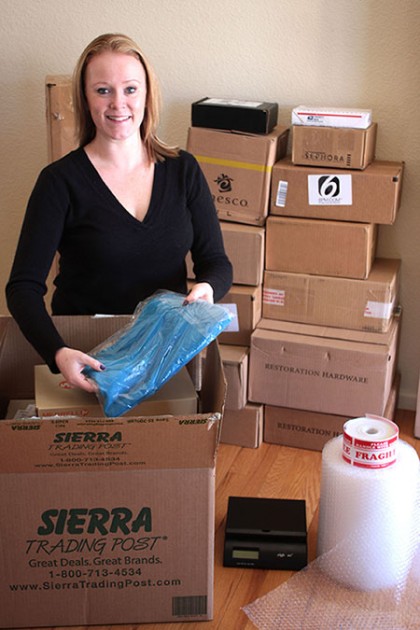Shop anywhere without borders
Online shopping guide

Carolina Tillett may not fancy herself a revolutionary, but she's spent the past six years leading a different sort of uprising by enabling Australians to buy all kinds of products from US merchants, at prices that are often half the price of those charged here.
Tillett's company, Price USA (www.priceusa.com.au), is one of a new kind of shopping intermediary known as a 'parcel forwarder' or 'overseas shopping assistant'.
Basically, you decide what you want to buy, and Price USA buys it for you and ships it to your Australian address.
Tillet's company has grown massively since she started it in 2007 — as "something I could do part time, in between kids and other stuff", she recalls.
She now has eight agents in the US working full-time to keep up with the demand from her Australian customers.

Those agents take instructions from the Australian customers, order products online from US merchants, then have the products delivered to their homes for repacking and ultimate delivery to Australia.
Products from multiple merchants can be bundled into one box to save on delivery.
Get daily insight, inspiration and deals in your inbox
Sign up for breaking news, reviews, opinion, top tech deals, and more.
The most popular products over the Christmas season, Tillett says, included Amazon's Kindle Paperwhite (US$119 in the US versus $215 plus here), and "all kinds of shoes" — especially sizes and styles for women with larger feet.
Runners, fashion items, makeup and even ski boots have all flowed through the company's agents, as have Apple iTunes cards, gadgets, Google Nexus 10 tablets and even chocolate and messenger bags.
Add on a small handling fee and delivery costs, and Australian shoppers can finish the transaction hundreds or thousands of dollars ahead — even on the rare occasions where the Australian Customs Service mandates the payment of a 10% GST on shipments worth more than $1,000. Still ahead.
Historically, low levels of online shopping allowed Customs to be relatively lenient on this limit, but increasing use of services like Price USA — and a growing number of overseas merchants happy to ship directly to Australia — have started enticing Aussies away from local malls.
"When stores like Zara opened in Melbourne, it was a big deal," says Tillett. "But when you buy items from Zara in Australia, it's almost twice the price as in the US. A lot of customers do their window shopping here and buy in the US."
Price isn't the only reason customers are looking overseas — the ability to redirect to a US-based address lets Aussies access US-only products such as made-to-order Converse sneakers (www.converse.com/create), personalised M&Ms (www.mymms.com), or the online and the US-only Prescriptives makeup (www.prescriptives.com).
Throw in the benefits of access to brands that aren't available here at all, and styles that will never be landed in Australia through other channels, and you've got an irresistible combination for any Australian shopaholic.
"We've had a 500% increase in volumes in the past six months," says Sarah Madigan, previously a Brisbane-based banker, who now lives in Colorado and runs US to Oz (www.ustooz.com) from her home. "The word is definitely getting out."

Why shopping overseas direct is not easy
Fashion label Tommy Hilfiger will let you view its current catalogue but if you're not in the US — or 15 other European countries — you can't shop from its site.
Benetton does the same. US department store giant Neiman Marcus, seminal online shopping destination Amazon, and many other US retailers have — at the instruction of particular brands they carry, such as Chloé and Christian Louboutin — earmarked many product lines as being unavailable for shipment overseas.
Many brands are gradually extending an olive branch to Australian customers, with Gap and homewares retailer Pottery Barn recently introducing shipping to Australia, New Zealand and other countries through fulfilment provider FiftyOne — which uses geo-blocking to vary retail prices charged to customers.